Savor Paradise: Top Kenyan Food & Drink Experiences
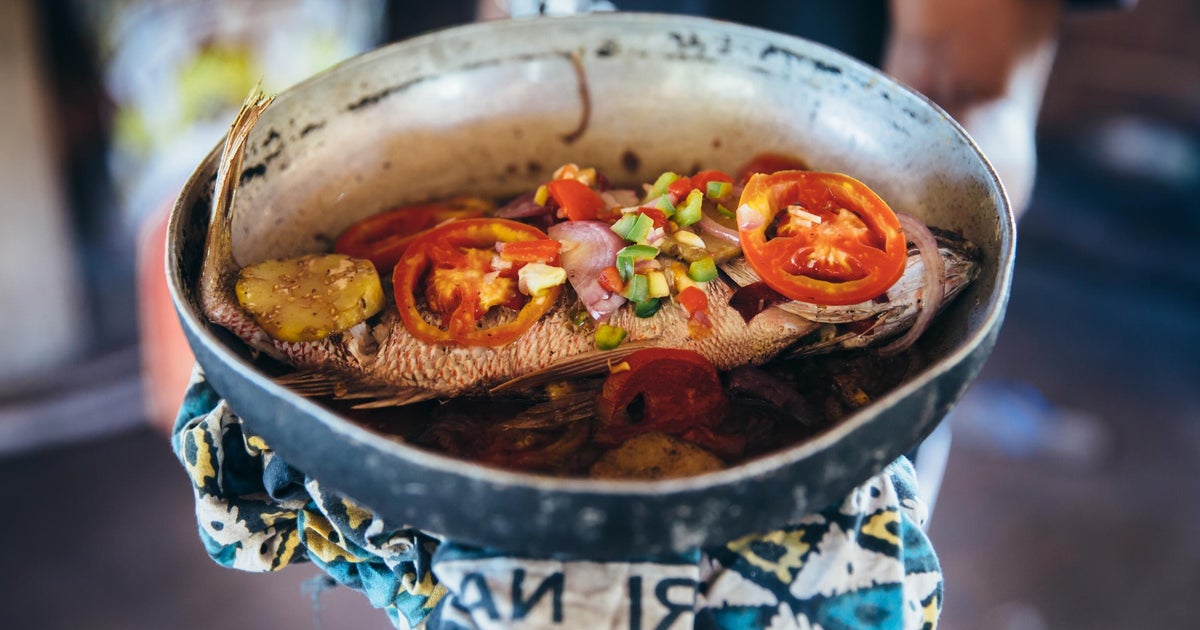
Introduction
Food plays a crucial role in the local culture and social gatherings in Kenya. Kenyan cuisine is diverse and reflects the country's history, geography, and cultural influences. Sharing a meal in Kenya is about satisfying hunger and bonding, celebrating, and connecting with others. In this blog post, we will explore the importance of Kenyan cuisine and the role of food and drink in social gatherings.
Overview of Kenyan cuisine and its importance in the local culture
Kenyan cuisine is a fusion of various culinary traditions, including African, Arab, Indian, and European influences. The staple food in Kenya is "ugali," a thick maize porridge often served with vegetables, meat, or fish. Other popular dishes include "nyama choma" (grilled meat), "sukuma wiki" (collard greens), "chapati" (flatbread), and various stews and soups.
Food is not just sustenance for Kenyans; it is deeply rooted in their cultural identity. Traditional Kenyan recipes are passed down through generations, and cooking methods often involve community participation and storytelling. Kenyan cuisine also highlights the country's biodiversity, with various ingredients sourced from land and sea.
The role of food and drink in Kenyan social gatherings
In Kenya, food is a central part of social gatherings and celebrations. Whether it's a wedding, a religious festival, or a family gathering, no event is complete without a feast. Sharing a meal is a way to connect with others, strengthen relationships, and show hospitality. It is common for Kenyans to go the extra mile to prepare elaborate meals and serve guests with generosity.
Drinks also play a significant role in Kenyan social gatherings. Traditional alcoholic beverages like "chang'aa" (fermented grain or fruit distillate) and "busaa" (sorghum-based beer) are often consumed during celebrations and special occasions. Non-alcoholic drinks like "chai" (tea), "madafu" (coconut water), and "maji ya limao" (lemon water) are also popular choices.
Overall, food and drink are not just sources of nourishment in Kenya; they are symbols of unity, tradition, and celebration. The culinary traditions of the country reflect its rich cultural heritage and play a crucial role in connecting Kenyans with their roots.
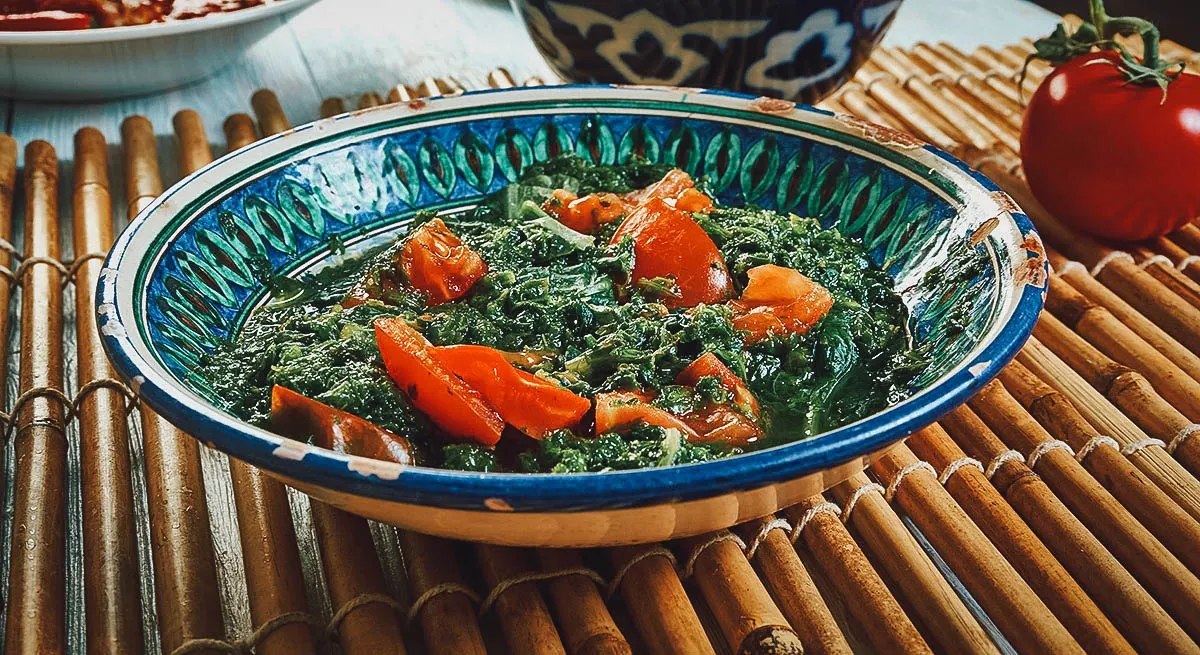
Traditional Kenyan Dishes
Popular Kenyan dishes: Ugali, Nyama Choma, and Sukuma Wiki
In Kenya, traditional dishes hold a special place in the hearts and palates of the people. Let's dive into some of the most popular Kenyan dishes:
-
Ugali: This is the staple food of Kenya, made from maize flour. It is a thick porridge often served alongside vegetables, meat, or fish. Ugali is cherished for its simplicity and ability to fill one's stomach.
-
Nyama Choma: This dish is a true delight for meat lovers. Nyama Choma refers to grilled meat, usually goat or beef. The meat is marinated with a blend of spices and grilled until it is tender and flavorful. Nyama Choma is often enjoyed with friends and family during social gatherings.
-
Sukuma Wiki: Sukuma Wiki, which means "push the week" in Swahili, is a dish made from collard greens. It is popularly eaten with Ugali and is known for its affordability and nutritional value. Sukuma Wiki is a versatile dish that can be cooked in various ways, including sautéing or stewing.
Exploring the flavours and ingredients used in these dishes
Each of these popular Kenyan dishes has its unique flavours and ingredients:
-
Ugali has a neutral taste and serves as a companion to other dishes. It provides a hearty and filling base that complements the flavours of vegetables, meat, or fish.
-
Nyama Choma is known for its smoky and grilled flavours. The meat is often marinated with spices like ginger, garlic, and coriander, which add depth and richness to the dish.
-
Sukuma Wiki is typically cooked with onions, tomatoes, and various spices like cumin and paprika. These ingredients enhance the natural flavours of the collard greens and create a delicious and nutritious dish.
Traditional Kenyan dishes like Ugali, Nyama Choma, and Sukuma Wiki are tasty and reflect the country's rich cultural heritage. These dishes bring people together, create memorable experiences, and celebrate the diversity of flavours that Kenya has to offer. So, if you ever have the chance to try these dishes, be prepared for a culinary adventure that will leave you wanting more!
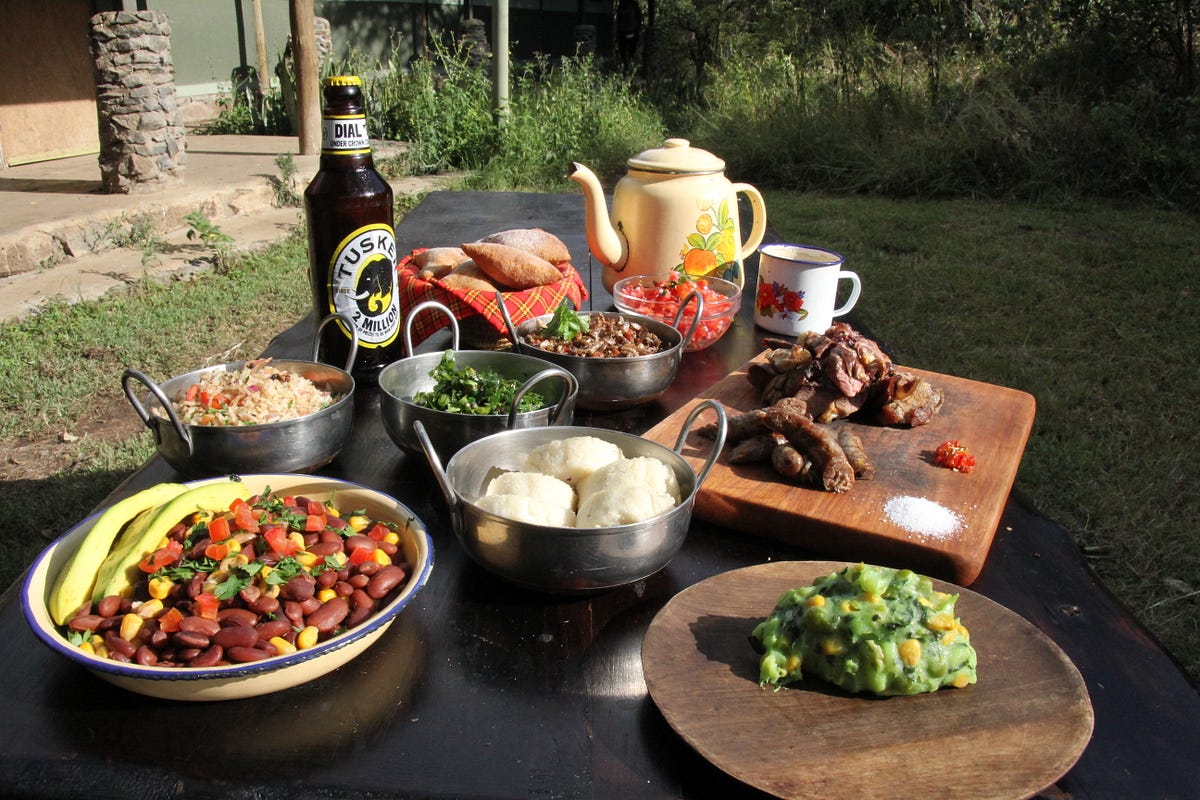
Coastal Delights
Swahili cuisine: A fusion of African, Arabian, and Indian influences
When it comes to experiencing the vibrant flavours of Kenya, the coastal region is a must-visit. The Swahili cuisine in this area is a delightful fusion of African, Arabian, and Indian influences. Get ready to tantalize your taste buds with these unique and delicious dishes:
Must-try dishes and drinks from the coastal region
- Biriani: This fragrant and flavorful rice dish is a staple in Swahili cuisine. It is typically made with spiced rice, meat (such as chicken, beef, or goat), and various vegetables. The aromatic cumin, cardamom, and turmeric blend makes Biriani a truly memorable dish.
- Samosas: These triangular pastries filled with spiced meat or vegetables are a popular street food snack in the coastal region. Whether you prefer them with beef, chicken, or vegetarian fillings, samosas are a delicious and convenient snack on the go.
- Pilau: Pilau is a rice dish cooked with spices, including cinnamon, cloves, and cumin. It is often served with creamy coconut sauce and flavorful condiments like kachumbari (a refreshing tomato and onion salsa).
- Madafu: When it comes to refreshing drinks, Madafu is a must-try. This juice is extracted from young coconuts and is known for its hydrating properties. Sip this delightful beverage and quench your thirst while enjoying the coastal breeze.
- Mandazi: These deep-fried fluffy pastries are often enjoyed as a breakfast or tea-time snack. They are slightly sweet and sometimes flavoured with cardamom or coconut. Mandazi pairs perfectly with a cup of spiced chai tea.
So next time you find yourself in Kenya's coastal region, indulge in these mouthwatering dishes and drinks. The Swahili cuisine offers a unique blend of flavours that will leave you craving more. Bon appétit!
Nairobi's Vibrant Food Scene
Exploring Nairobi's diverse culinary offerings
Regarding exceptional dining experiences in Kenya, the bustling city of Nairobi offers a vibrant and diverse food scene. From traditional Kenyan cuisine to international flavours, here are some of the culinary delights you can explore in the city:
The best restaurants and street food spots in the city
Nairobi is home to a wide range of restaurants and street food spots that cater to all tastes and budgets. Whether you're looking for an elegant fine dining experience or a quick and flavorful bite on the go, Nairobi has something to satisfy every palate. Here are a few recommendations:
| Restaurant | Cuisine | Highlight |
|---|---|---|
| Mama Oliech | Kenyan | Renowned for their mouthwatering fish dishes |
| Tamarind | Seafood | Offers a scenic view of the Nairobi skyline |
| Tin Roof Café | International | Famous for their healthy brunch options |
| K'osewe Ranalo Foods | Kenyan | Known for their authentic Kenyan dishes like ugali and sukuma wiki |
| Street Food Market | Various | A lively atmosphere with a variety of street food stalls |
Whether you choose to dine in a renowned restaurant or explore the city's vibrant street food culture, Nairobi's food scene promises a memorable experience for food enthusiasts. Don't miss the opportunity to savour the diverse flavours that the city has to offer. Enjoy!
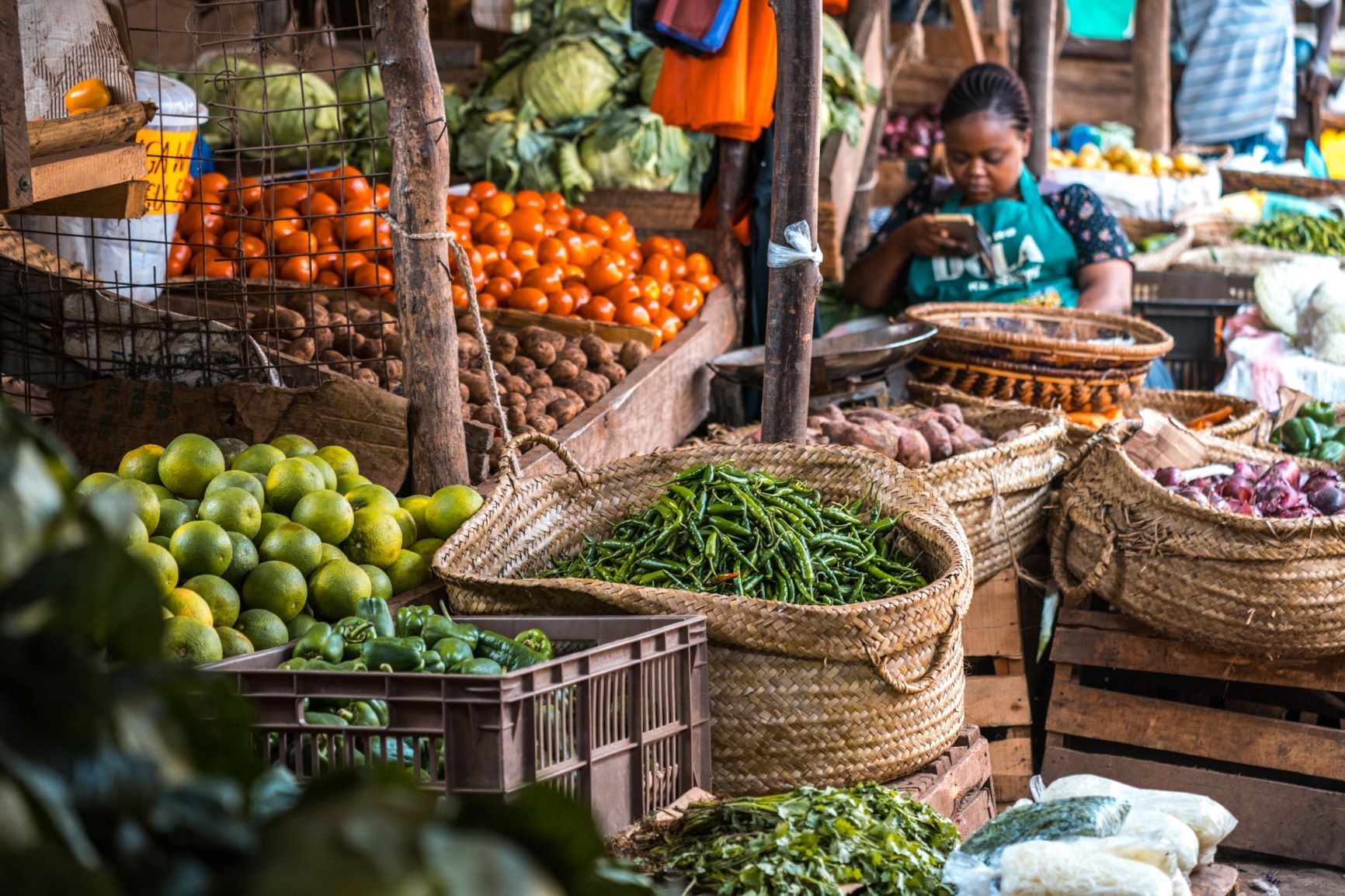
Exotic Grains and Stews
The use of unique grains like millet and sorghum in Kenyan cuisine
Regarding Kenyan cuisine, one cannot miss using exotic grains such as millet and sorghum. These grains have been a part of Kenyan culinary traditions for centuries and are still widely used in many dishes. Millet, a tiny grain with a slightly nutty flavour, is often used to make porridge or ground into flour for baking bread and cakes. Conversely, Sorghum is a versatile grain that can be used to make flour, fermented to make beer, or popped like popcorn. These unique grains give Kenyan dishes a distinct taste and texture not found in many other cuisines.
Delicious stews and sauces that accompany these grains
To complement the unique flavours of millet and sorghum, Kenyan cuisine is known for its delicious stews and sauces. Some popular stews include sukuma wiki, a flavorful mixture of collard greens, onions, and tomatoes, and githeri, a hearty stew made with beans, corn, and various vegetables. Using spices such as turmeric, ginger, and cardamom adds depth and richness to these stews. Additionally, Kenyan cuisine features a variety of sauces, such as kachumbari, a fresh tomato and onion salsa, and coconut curry sauce, which pairs perfectly with dishes like pilau rice or chapati.
Combining exotic grains and flavorful stews and sauces creates a unique dining experience in Nairobi. Whether you're enjoying a traditional Ugali dish with sukuma wiki or trying a modern twist on millet-based pancakes, you can be sure to tantalize your taste buds with the variety and creativity of Kenyan cuisine. Don't miss the opportunity to explore Nairobi's vibrant food scene and indulge in the exotic grains and stews that make it so special.
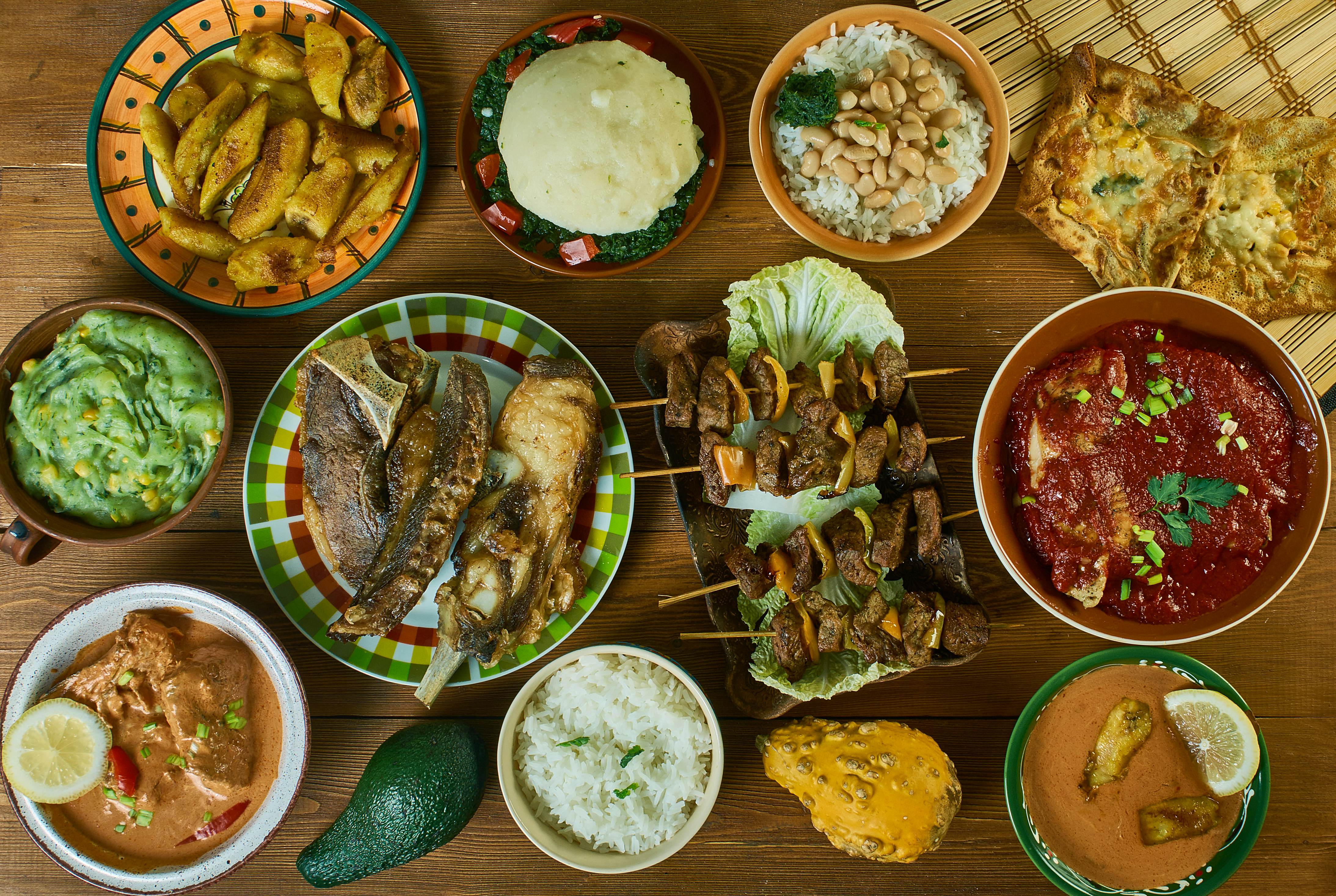
Farm-to-Table Experiences
Farm visits and organic food experiences in Kenyan rural areas
Imagine immersing yourself in the lush green landscapes of the Kenyan countryside, where farms produce some of the freshest and most flavorful ingredients. In recent years, farm-to-table experiences have gained popularity in Nairobi and other cities, offering visitors a chance to connect with local farmers and indulge in organic food experiences.
During farm visits, you can witness firsthand the process of cultivating exotic grains like millet and sorghum. Feel the earth in your hands as you learn about traditional farming techniques passed down through generations. Participate in harvesting activities and witness the journey from field to plate.
After a day in the fields, enjoy a meal prepared by local chefs using ingredients sourced directly from the farm. Taste the difference as you savour the unique flavours of millet and sorghum, cooked to perfection. Every bite tells a story of sustainability and the importance of preserving local culinary traditions, from hearty stews to aromatic sauces.
Supporting sustainable agriculture and local farmers
By participating in farm-to-table experiences, you are treating yourself to a delightful culinary adventure and supporting sustainable agriculture and local farmers. These experiences help to create a direct connection between consumers and producers, promoting a fairer and more transparent food system.
When you dine at farm-to-table restaurants or purchase local produce from farmers' markets, you contribute to the growth of sustainable farming practices. This sustainable approach ensures that farmers receive fair compensation for their hard work while preserving the natural resources and biodiversity of the land.
Moreover, supporting local farmers helps to strengthen the local economy and contributes to the overall development of rural communities. By choosing to eat sustainably and celebrate the flavours of Kenyan cuisine, you are making a positive impact on both the environment and the lives of the people who work tirelessly to bring food to your table.
So, if you want a unique and meaningful dining experience in Nairobi, consider exploring the farm-to-table offerings. Connect with the land, support local farmers, and savour the incredible flavours of Kenyan cuisine. Your taste buds and the planet will thank you!
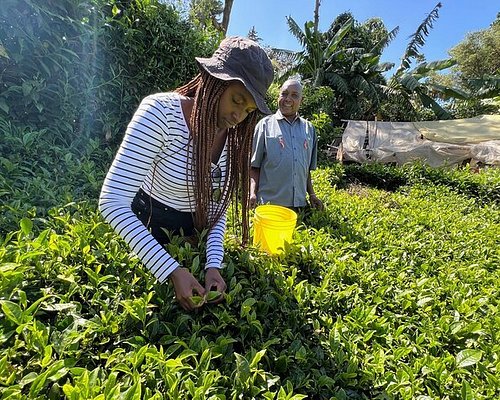
Kenyan Tea and Coffee Culture
The significance of tea and coffee in Kenyan society
Tea and coffee hold a special place in Kenyan society, with these beverages being integral to daily life. In Kenya, tea and coffee are not just drinks but symbols of hospitality, community, and connection. Whether you're a tea lover or a coffee aficionado, exploring Kenya's rich tea and coffee culture is a must.
Visiting tea and coffee plantations for a delightful tasting experience
To truly appreciate Kenyan tea and coffee, why not visit the plantations where these flavoursome beverages are grown? Embark on a journey to tea and coffee plantations and immerse yourself in the cultivation and production process. Witness the meticulous care that goes into ensuring the quality and taste of every cup.
During your plantation visit, you'll engage with skilled farmers who have perfected the art of tea and coffee production. Learn about the different varieties of tea leaves and coffee beans and the intricate processes of turning them into the aromatic beverages we love.
After gaining insight into the production process, it's time to indulge in a delightful tasting experience. Sip on freshly brewed tea and coffee while enjoying the serene surroundings of the plantations. Let the flavours dance on your tongue as you savour every sip of the rich and aromatic brews.
As you explore Kenyan tea and coffee plantations, you'll satisfy your taste buds and contribute to the local economy. By directly supporting these plantations, you help to sustain the livelihoods of the farmers and their communities. It's a win-win situation - you get to enjoy exceptional tea and coffee while positively impacting Kenyan farmers' lives.
So, if you're a tea or coffee enthusiast, don't miss the opportunity to immerse yourself in Kenya's vibrant tea and coffee culture. Taste the rich flavours, learn about the intricate production methods, and support the local communities. It's an experience that will leave you with a deeper appreciation for these beloved beverages.
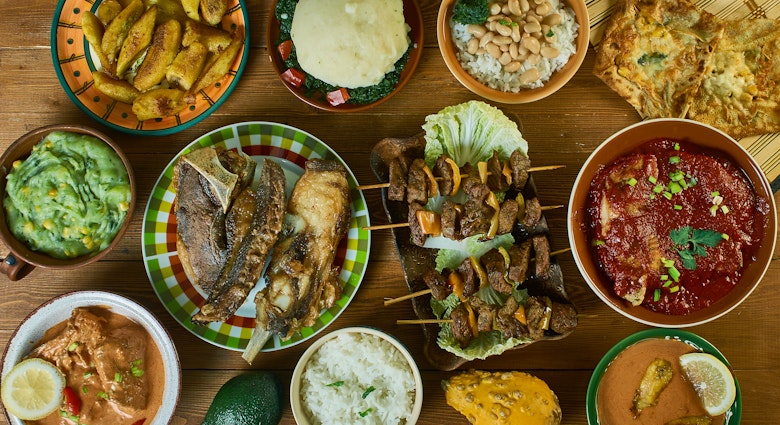
Refreshing Beverages
Traditional Kenyan drinks: Maasai Mara, Mursik, and Dawa
When it comes to traditional Kenyan drinks, there are a few unique and refreshing options that you must try. The Maasai Mara is a popular drink from hot water mixed with fresh or dried fruits, herbs, and spices. It's a delicious blend of flavours with a touch of sweetness.
Another traditional Kenyan drink is Mursik, a fermented milk beverage the Kalenjin community enjoys. Mursik has a tangy and creamy taste and is prepared by fermenting milk in a specially carved gourd with the help of ash and herbs.
Dawa, which means "medicine" in Swahili, is a concoction made from vodka, honey, lime, and hot water. It is believed to cure common ailments and is often enjoyed as a soothing and warming drink.
How these beverages are made and their cultural significance
The Maasai Mara is made by infusing hot water with fruits such as lemons, oranges, passion fruits, and herbs like mint and lemongrass. This refreshing drink is commonly served during social gatherings and celebrations.
Mursik uses ash from burned cow dung and special herbs to ferment the milk inside a gourd. The fermentation process gives Mursik its unique taste and texture. It is often consumed as a traditional drink during rituals and ceremonies.
Dawa is made by mixing honey, lime juice, vodka, and hot water. It is believed to have medicinal properties and is often served as a remedy for cold and flu symptoms.
These traditional Kenyan drinks offer a refreshing taste and hold cultural significance. They are a source of pride and identity for different communities in Kenya and are often shared during important occasions and social gatherings.
So, next time you visit Kenya, don't forget to quench your thirst with these traditional beverages. Experience the unique flavours and learn about the cultural significance behind each drink. Cheers to exploring Kenyan culture, one sip at a time!

Recommendations for travellers and food enthusiasts
- When visiting Kenya, try traditional Kenyan drinks such as Maasai Mara, Mursik, and Dawa to taste the country's rich cultural heritage.
- Explore local markets and street food stalls to find authentic versions of these beverages.
- Engage with locals and learn about the stories and rituals of each drink, as it adds a deeper understanding to your experience.
- Don't be afraid to experiment and try different variations or combinations of ingredients to personalize your drink.
- Remember to drink responsibly and be mindful of the alcohol content in Dawa.
- Document your journey and share your experiences with others to promote cultural appreciation and understanding.
- Finally, enjoy the refreshing flavours and the warm hospitality that Kenya has to offer.
